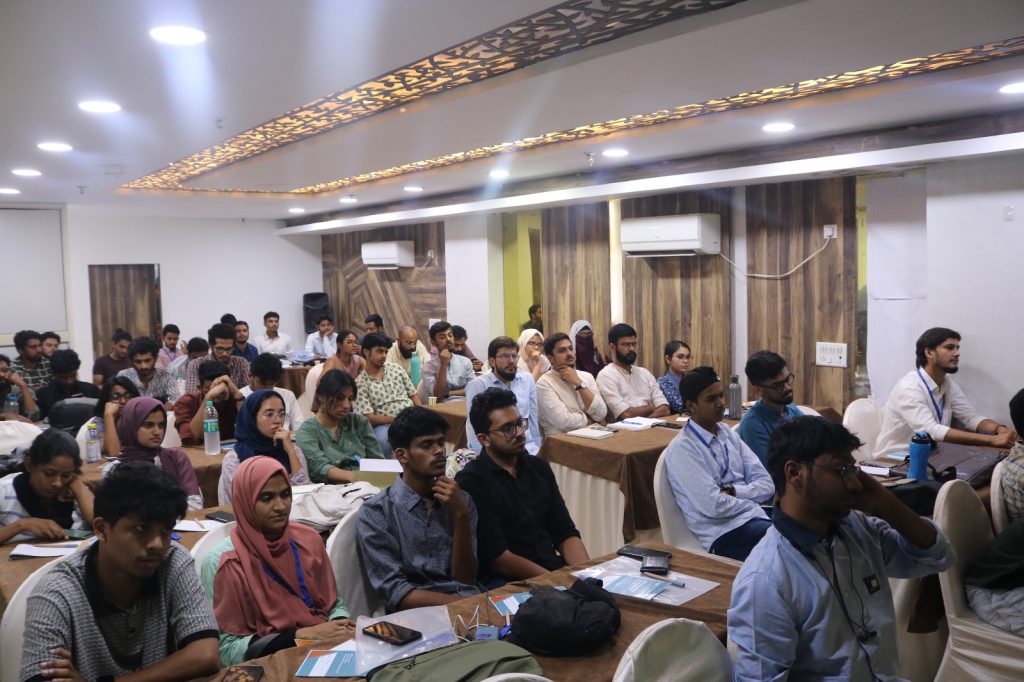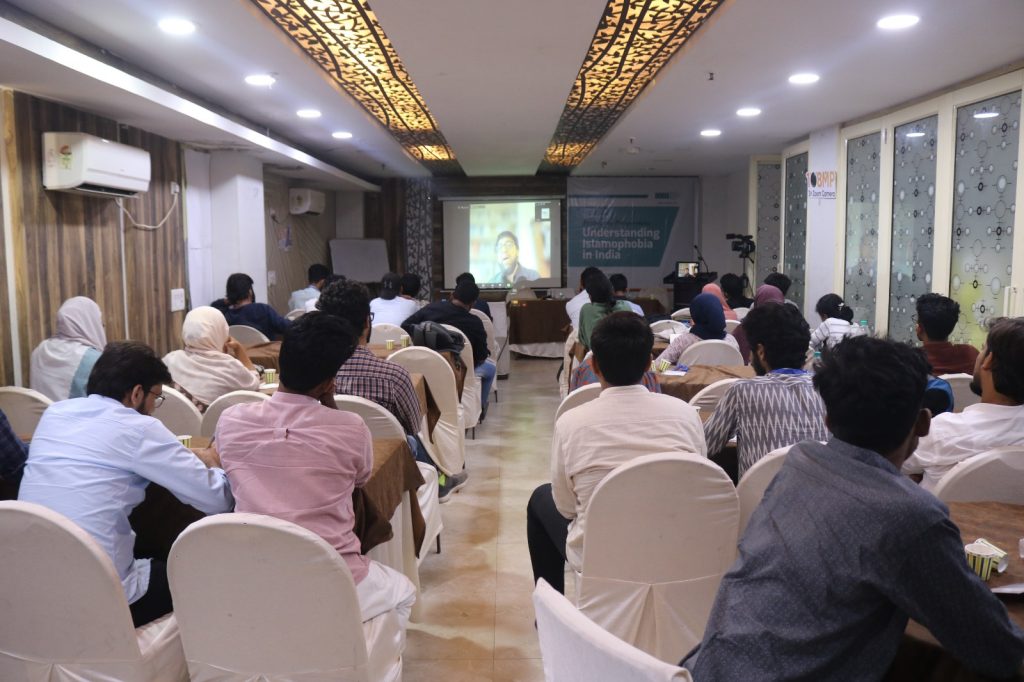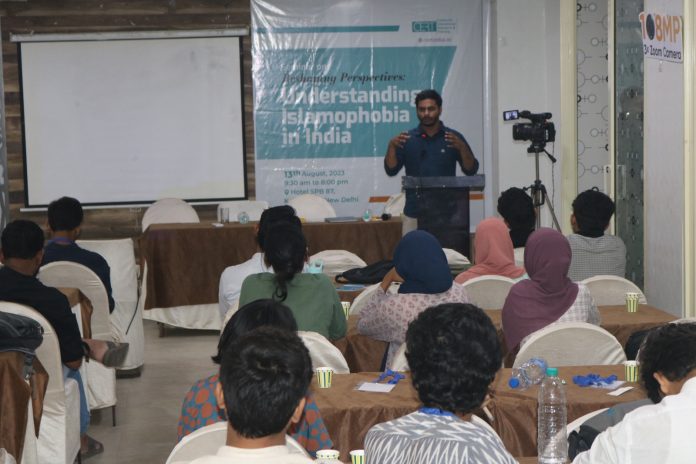India Tomorrow
NEW DELHI—What are the particularities or distinctive features of Islamophobia in India? How do the academicians and researchers in India arrive at the reasons for the current atmosphere of Islamophobia, a new vocabulary invented in the 21st century, particularly the post-9/11 terrorist attack on the World Trade Centre in New York?
A researcher at the University of Hyderabad Seba Fathima opines that Indian academicians have utilized the US context as research data to arrive at Islamophobia in India which has resulted in many academics missing the correct reasons for Islamophobia in India.
These comments were made by Fathima while presenting a paper at a seminar on the issue of “Reshaping Perspectives: Understanding Islamophobia in India” organized by the Centre for Educational Research and Training (CERT) here in the second week of this month.
She says that Indian academicians bid to refer to the “hard Hindu communalism” of the BJP and the “soft Hindu communalism” of INC as the reasons for the rise of Islamophobia in India indicate the “academic indifference” in the country.
She claims that the roots of Islamophobia lay in the nationalist and independence movements in the 19th and 20th centuries when the Hindutva elements prepared literature to describe Muslims as “cultural others”, different from Hindus, and hence, they can’t be nationalists.

She contends that Indian academicians from the dominant religious communities/castes have missed the focal point of cultural nationalist historiography which served as a political project during the late colonial and post-colonial periods of the country and neatly categorized the Muslim population into “good” and “bad” ones who could never be truly “nationalist.”
Dwelling deep into the issue, she said that while British colonial rulers identified the Indian population in terms of its religious identity, the Hindu nationalist movement sowed the seeds of India as exclusively Hindu in the popular psyche. The problem was compounded when the nationalist historians stated that the Indian sub-continent was subjected to foreign invaders – Mughals, Turks, Afghans. But these invaders were distinguished from the rulers of the local princely states though both of them were involved in internecine warfare with each other.
According to Fathima, upper-caste Hindu historians have hidden the fact that Babar was invited by Rajput rulers to defeat the Lodhi rulers in Delhi. Hence, the arguments about foreign Muslim invaders do not fit into the Hindu-Muslim binary as propagated by historians of the rightist group. To speak the truth, it was Hindu ruler Rana Sanga of Rajputana (now Rajasthan) who invited Babar to attack Ibrahim Lodhi who occupied the political power in Delhi at that time.

Elaborating further, she said that Hindutva elements used these historical events to generate anti-Muslim hatred during the nationalist and freedom movement which is often referred to as the Congress movement and such elements were present in the Congress also. While the Congress could not prepare any literature on it because of its commitment to secularism, the militant Hindutva outfits prepared literature about it that became the basic reason for the current atmosphere of Islamophobia and anti-Muslim hatred in the country.
She says that while British-Christian rulers punished Muslims heavily for the 1857 revolt, known as the first freedom movement because it was primarily a Muslim-led movement, they sanctioned the idea of a Muslim Pakistan when they found Hindus having launched a movement to seek independence for India. Britishers had no sympathy for Muslims. They used the Pakistani ploy to weaken the freedom movement. As some of the Muslim leaders consented to the idea, this further inflamed anti-Muslim hatred among the Hindus, particularly radical Hindus.
Quoting historian Mahmood Mamdani, Fathima says that Hindutva elements built a new anti-Muslim and anti-Islam narrative by arguing that Islam is cultural (read religiously) “the Other” and this was surprisingly not questioned by the nationalist historiographers. Consequently, this view got acceptance by the majority community, or to be exact, the Hindu community. This led to projecting “cultural Others” as bad. By default, all Muslims belonging to India were defined as “bad” nationalists.
She says that mainstream Indian politicians also used almost the same language. They said that “good” Muslims practice “popular” Islam adhering to local indigenous culture while “bad” Muslims follow “official” Islam by strictly adhering to the fundamentals of Islam. This cultural talk about Islam and Muslims further exacerbated the hatred against Muslims in India. This identification of the Good Muslim and Bad Muslim binary was significant in post-9/11 discourse and it added to the already existing hatred against the Muslim community in India.
Explaining this binary, Fathima says that Hindu communalists, including some in the Congress, demanded Muslims to merge culturally into the Hindu cultural mainstream to nationalize Indian Muslims’ outlook. She says that Congress leader Purushottam Das Tandon called for “the Muslims to stop talking about a culture and a civilization foreign to the country and genius.” Tandon, she says, asked Muslims to accept Indian culture to pave the way for real unity. This indicates the degree of hatred against Muslims and their culture derived from Islam based on adherence to the worship of one and only One God.
Fathima says that the writings and views of Hindutva ideologue VD Savarkar are among the roots of Islamophobia in India. Savarkar identified Muslims, Christians, and Communists as “Others” and said they needed to be nationalized and merged into the Indian culture based on the Hindu religion. She says that even leaders of INC harboured these views. The term “nationalist Muslims” also added to anti-Muslim feelings because it indirectly suggested that there are non-nationalist Muslims also.
Others who participated in the seminar, included Prof. Salman Sayyid, a Professor in Rhetoric and Decolonial Thought at the University of Leeds, Dr. Najib Kawtar from the University of Liverpool, Prof. Tanweer Fazal from the Department of Sociology, University of Hyderabad, JNU researcher Shyamolie Singh and Prof. Irfanullah Farooqui, an Assistant Professor in the Department of Sociology at South Asian University.





